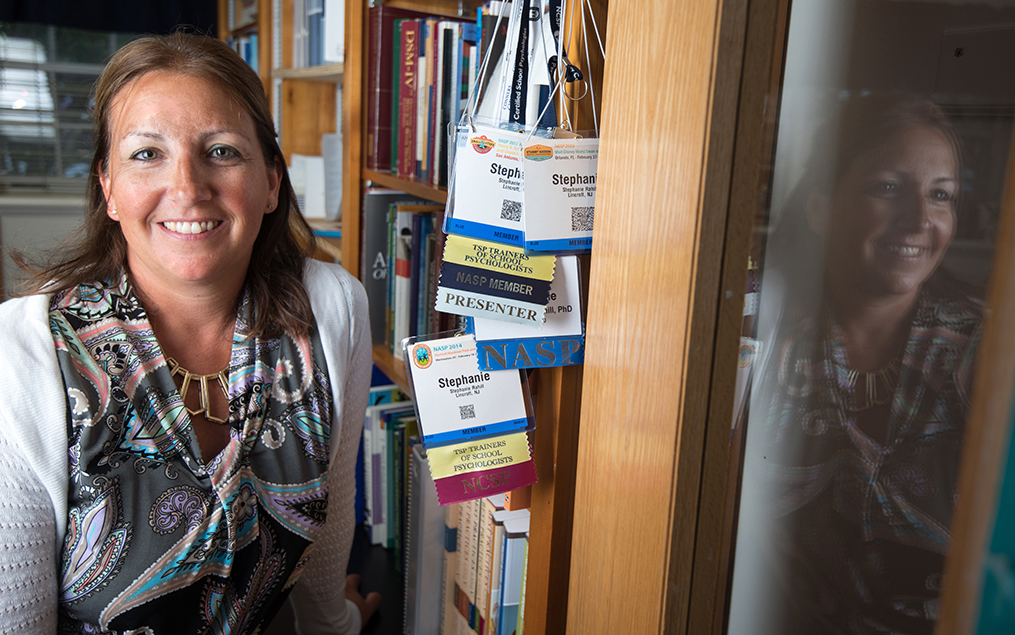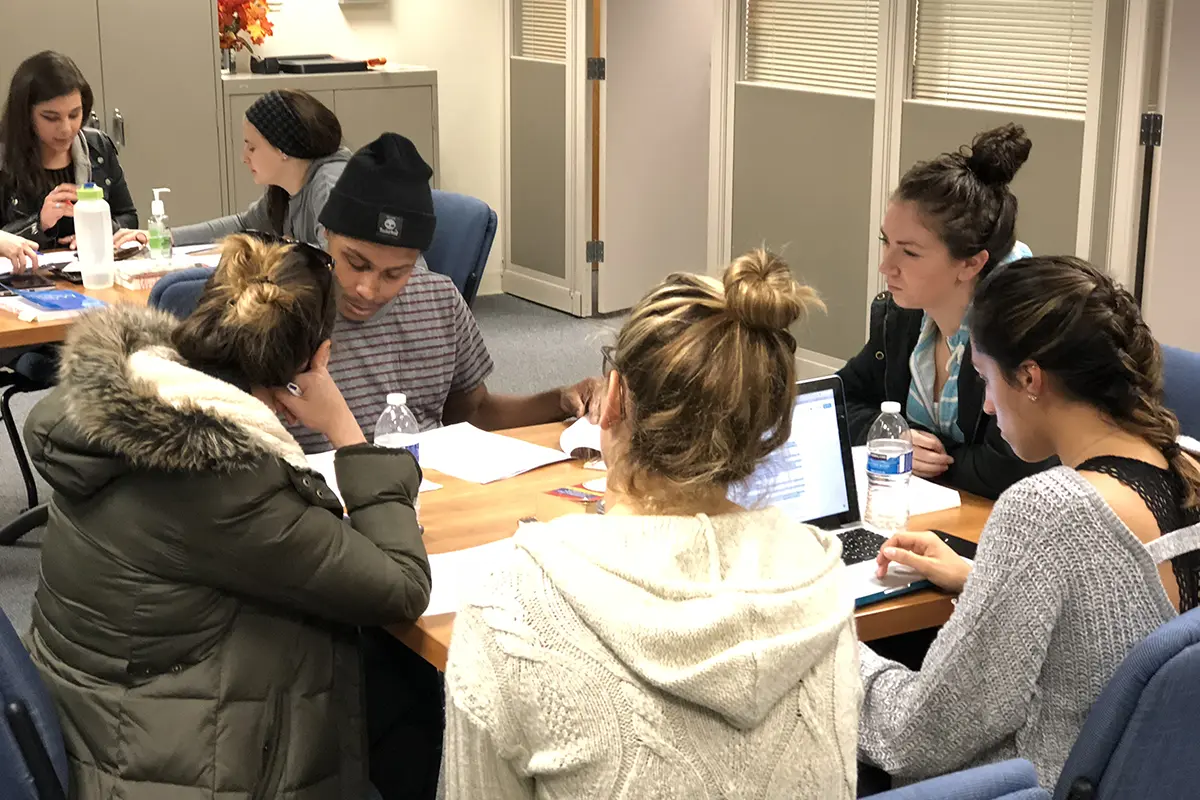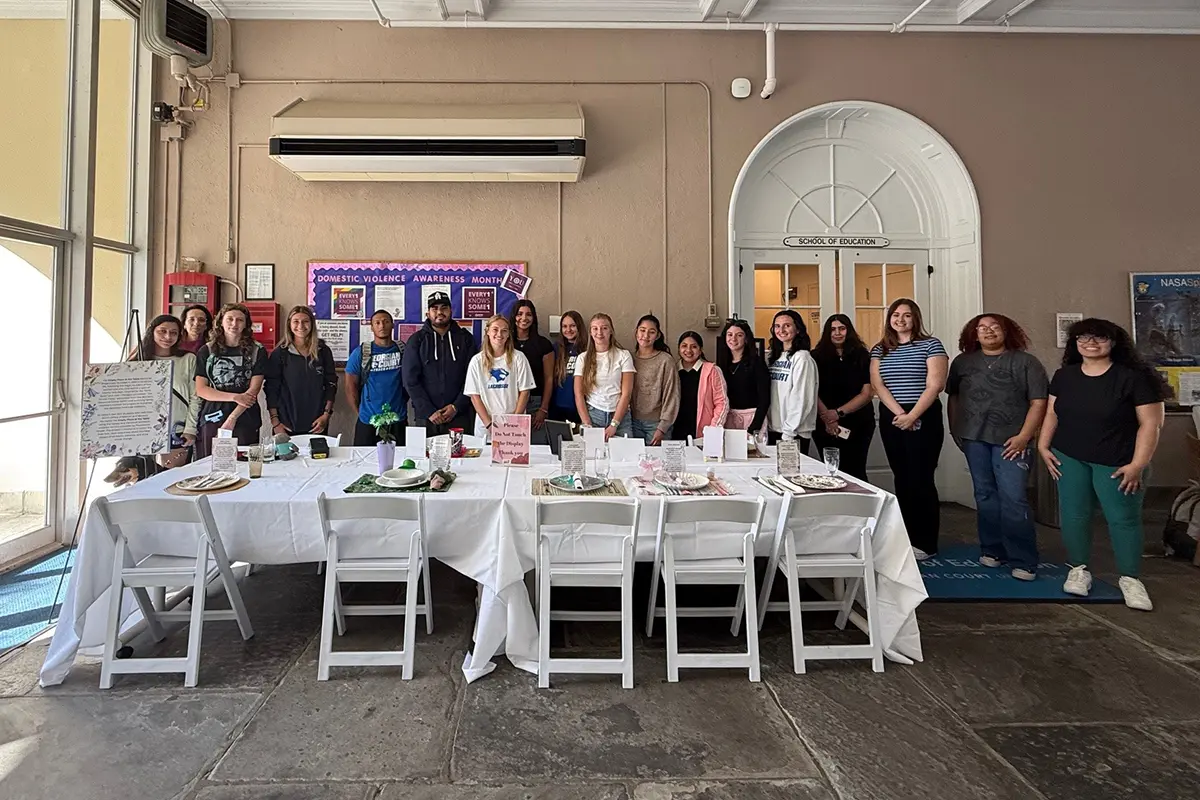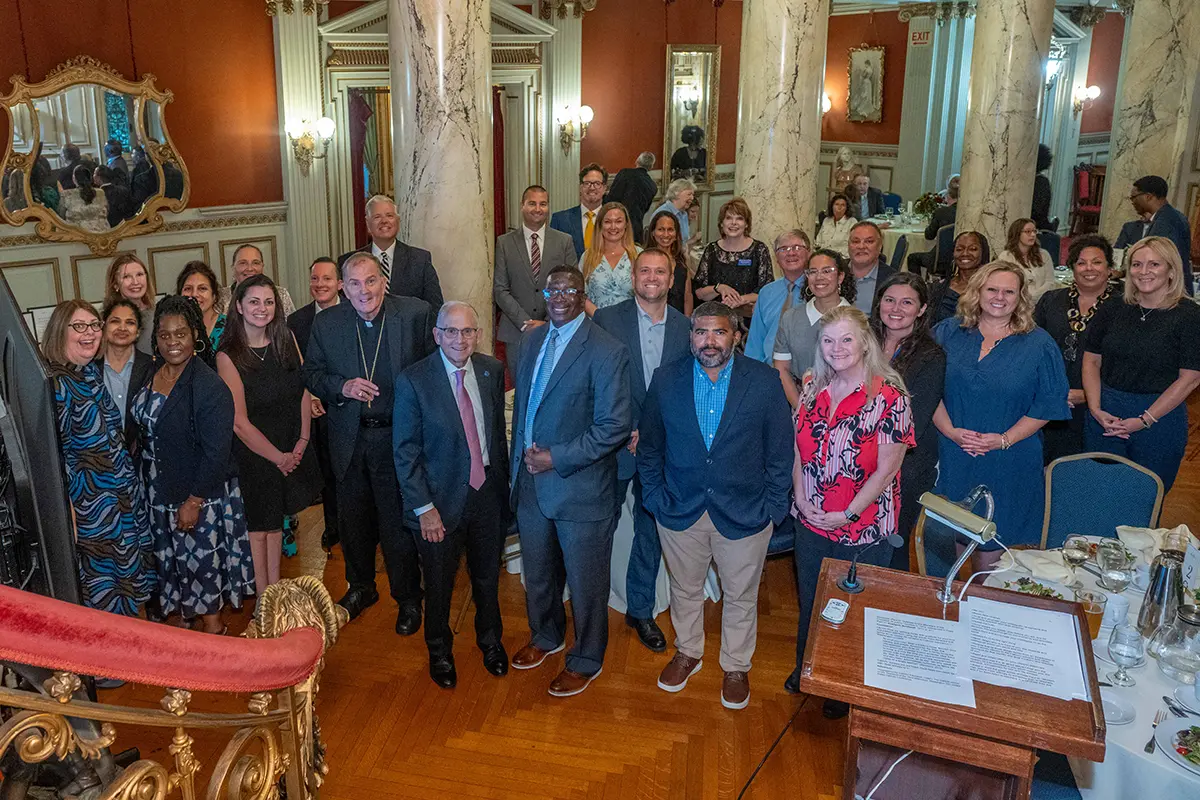Stephanie Rahill, Ph.D., Assistant Professor of Psychology
Photo: Russ DeSantis
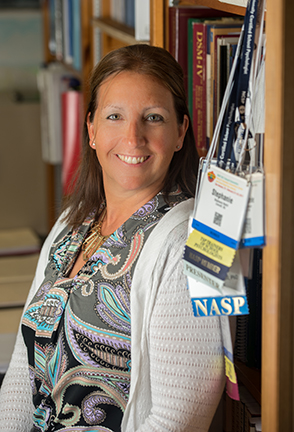
Stephanie Rahill, Ph.D., assistant professor of psychology, is on a mission: helping school psychologists have the greatest possible impact. At the 2017 conference of the National Association of School Psychologists, where she presents annually, she was a speaker in four sessions, two of them related to school psychologists’ effectiveness and report writing.
My research agenda is focused on how school psychologists communicate with parents and staff in schools. I look at written communication, oral communication, and how we can do a better job of presenting ourselves and the work we do,” she says. She has written a number of journal articles on these subjects, as well.
One key issue that Dr. Rahill addressed in two of her sessions this year is report writing. While school psychologists capture valuable information and insights as they work with students, their reports are often dense and filled with jargon. That makes them tough for parents and teachers to understand in many cases, Dr. Rahill says. As a result, those insights often don’t get integrated into the student’s classroom or home accommodations.
School psychologists want teachers to do evidence-based intervention, but when “we’re explaining to them, it doesn’t work for us to be the expert saying ‘you must do it this way,’” she says.
Dr. Rahill wants to make various elements of the school psychologist role—from consultation to report-writing—more accessible and easily understood. And she’s teaching her students to do the same thing. By training students to write straightforward reports that give clear guidance and recommendations and consult in collaborative ways that take into consideration teachers’ and parents’ abilities and knowledge, school psychologists can become a more valued part of any student’s education team.
“School psychologists are actually integral to the special education eligibility process in schools. School districts have to have a school psychologist—it’s written into federal law. Most people are more familiar with the guidance counselors and counselors in school, but not as much with our role,” she says. “Finding better ways to communicate and work together is in the best interest of students.”
Dr. Rahill is one of many faculty members who are also teaching courses at GCU@Hazlet, Georgian Court’s partnership program with Brookdale Community College that offers bachelor’s degrees in business administration, English, interdisciplinary studies, psychology, and a teacher certification program.
This article also appears in Faculty Focus 2017, Georgian Court’s report of faculty scholarship and creative activity. Story contributed by Gwen Moran.

